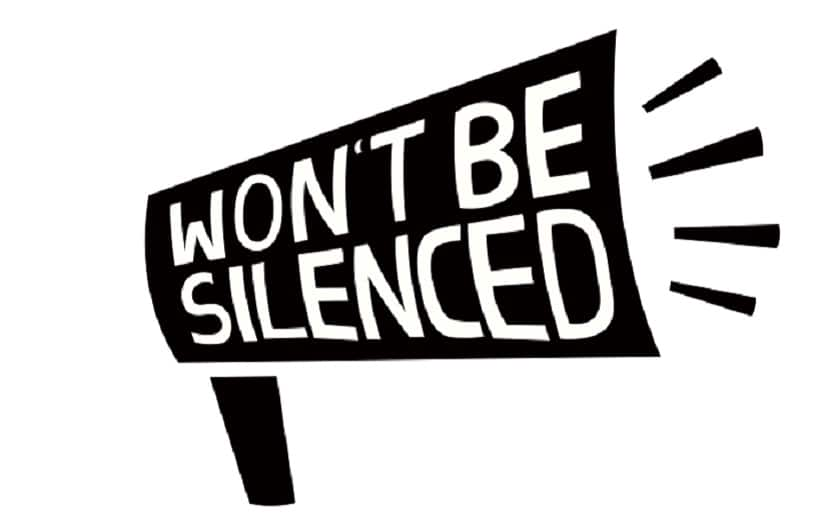As she waited for justice in the December 2012 gangrape and death of her 23-year-old daughter for over eight years, Asha Devi demonstrated exemplary courage and resilience. Last week, a trial court set 20 March as the new date for the hanging of the four men convicted in the case. The aftermath of the 2012 case brought renewed attention on sexual violence against women. In a society that speculates on the “reasons” for rape each time an incident is reported, it bears contemplation how our thoughts, opinions — and our silence — shape ideas about women’s safety. Survivors are often unwilling to step forward due to the societal, political and financial effects on their families, in turn allowing the accused to get away. Victim shaming and the threat of social ostracism are other reasons for silence. [caption id=“attachment_8134571” align=“alignnone” width=“825”]  As Rebecca Solnit writes, “Women are instructed by the way victims are treated and by the widespread tolerance of the epidemic of violence that their value is low, that speaking up may result in more punishment, that silence may be a better survival strategy." Image courtesy Simlyn J/Feminism In India[/caption] In her book The Mother of all Questions, author Rebecca Solnit noted: “Silence allows people to suffer without recourse, allows hypocrisy and lies to flourish, crimes to go unpunished. If our voices are essential aspects of our humanity, to be rendered voiceless is to be dehumanised or excluded from one’s humanity. And the history of silence is central to women’s history.” In 1973, Aruna Shanbaug, a 26-year-old nurse, was raped in a brutal attack that left her in a vegetative state for 42 years. In 1990, 14-year-old Hetal Parekh was raped and murdered. In 1996, law student Priyarshini Mattoo was found raped and strangled in her own apartment. In 2018, eight-year-old Asifa Bano was abducted from her village near Kathua, then raped and murdered. In 2019, a 27-year-old Hyderabad veterinarian was violated and burnt alive. Young women and girls, irrespective of being at home or work, have suffered. And yet, we focus on victims’ backgrounds, instead of their trauma. Just last month, a 16-year-old rape survivor in Meerut was attacked with acid when she refused to meet the demands of the perpetrator’s family — yet another instance of the threat survivors are under when their rapists go unpunished. Meanwhile, victims’ families grapple with the atrocities visited on their loved one. Asha Devi asked, “Did my daughter have no human rights or deserved any less to be alive when she was brutally violated without consideration?” Asifa’s parents said, “Our child was disfigured after being thrown from a rooftop, electrocuted and strangled to death. How can a person be so cruel? Our lives will never be the same.” On Firstpost: Media's use of imagery in reporting gender-based violence needs to change — and a feminist database has alternatives Solnit writes, “Women are instructed by the way victims are treated and by the widespread tolerance of the epidemic of violence that their value is low, that speaking up may result in more punishment, that silence may be a better survival strategy. Sometimes this is called rape culture.” Solnit’s writing raises much that is applicable in the Indian context, including how male entitlement views silence as consent; how rapists disappear from the narrative (that blames victims); and how rape and assault become weather conditions which women have to learn about and adapt to. If anything goes wrong, the failure is theirs.
Solnit says that silencing specific to women is a universal condition of oppression.
As women like Asha Devi and many others fight for justice in Indian courts, withstanding the stress of media coverage, public scrutiny and speculation, family pressure, threats from aggressors, and financial constraints, the questions we should be asking are: Why does a victim’s family have to wait eight years for justice? Why is brutalising women’s bodies so easy, but teaching men about consent and respect so difficult? What can we do as citizens to ensure survivors and victims’ families are not isolated during their fight? Should rapists be given the right to life because they deserve a(nother) chance, and if yes, what about their victims? In raising these questions, we must remember Audrey Lourde’s words: “What I most regretted were my silences…and there are so many silences to be broken.” Sneha Rout is a research scholar at Tulane School of Public Health and Tropical Medicine. Her work and interests revolve around maternal and child health, public health nutrition, gender equality and social behavioural change.


)

)
)
)
)
)
)
)
)



